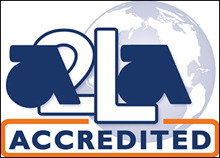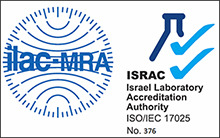During the calibration process, we identify the current state of your equipment by comparing it to our known standards. These standards are NIST-traceable and help us identify how your equipment is working. During calibration, we are able to quantify and help to limit the variation you may be seeing. In cases where the equipment is functioning properly, we do minimal servicing and return it to you; however, in cases where the equipment is not functioning properly, we are able to either adjust or repair the equipment, as necessary, to return it to tolerance. The cases where the equipment is not functioning properly are largely due to user damage, which is often preventable.
As we process your equipment, we review the damage and when we identify potential steps that can prevent damage we pass along these recommendations to you. Regular servicing of your equipment can prevent damage from occurring, mitigating future repair costs, and it creates opportunities for us to provide further education for usage and new products that might serve you better.
In cases where repairs are not necessary, it is still important to understand that ‘drift’ may occur. We have stated tolerances for the equipment and the equipment must function within those tolerances in order to be re-certified. As equipment ages and is exposed to contamination, there is a tendency to drift further away from the nominal values. Recalibration and servicing bring those deviations back within tolerance and closer to the nominal values. Because of this tendency to drift and exposure to contamination, we recommend calibration on an annual basis.
In addition to these benefits, regular calibration of the equipment avoids audit non-conformances. Significant time and energy is expended to qualify your products and processes, and audits are the moments when your work is reviewed under a microscope. Initially, responding to non-conformances can be very time consuming and can create the need for ongoing review.
Properly calibrated equipment can help maximize resources, whether it be through time, energy, or materials. We have assisted customers who have significantly reduced the scrap costs of their raw materials, customers who have avoided costly down-time due to improperly functioning equipment, and customers who have identified problems with product before it makes it to the end customer. In each of these scenarios, our equipment was utilized in the quality testing of the end product. This integration into the quality control makes it absolutely critical that your equipment is functioning properly.
Anytime a measurement is necessary, calibration is critical. It creates confidence that your processes are in control and that all steps are taken to create a positive experience with your products and services. Ultimately, calibration leads to better quality outputs, reduced costs, and to increased customer satisfaction. Your customers depend on you for accurate, quality products, and regular calibration helps to provide this.
For more information, see our Calibration Portal to request an RMA or review documents.



 Ultra-High Velocity
Ultra-High Velocity